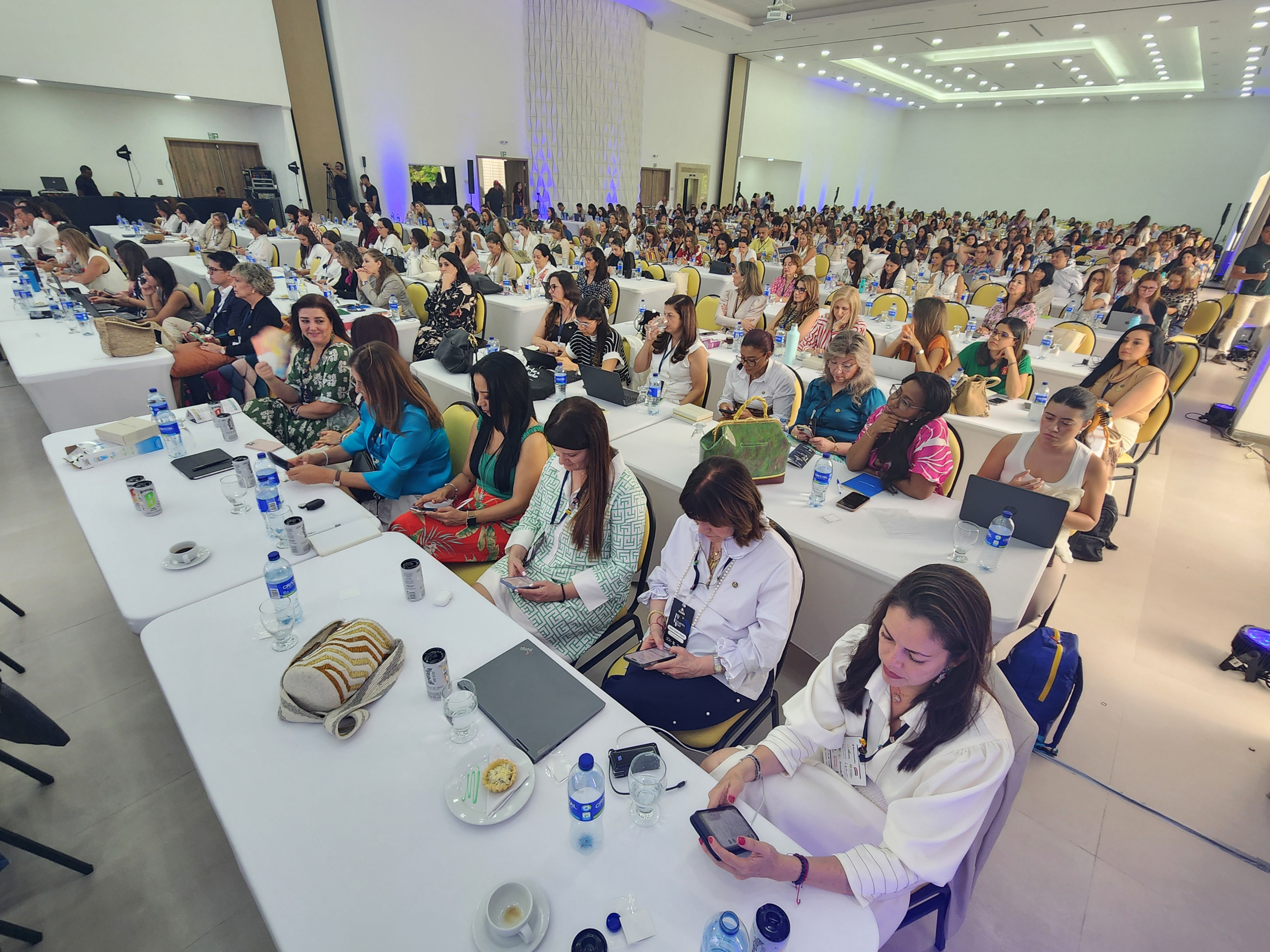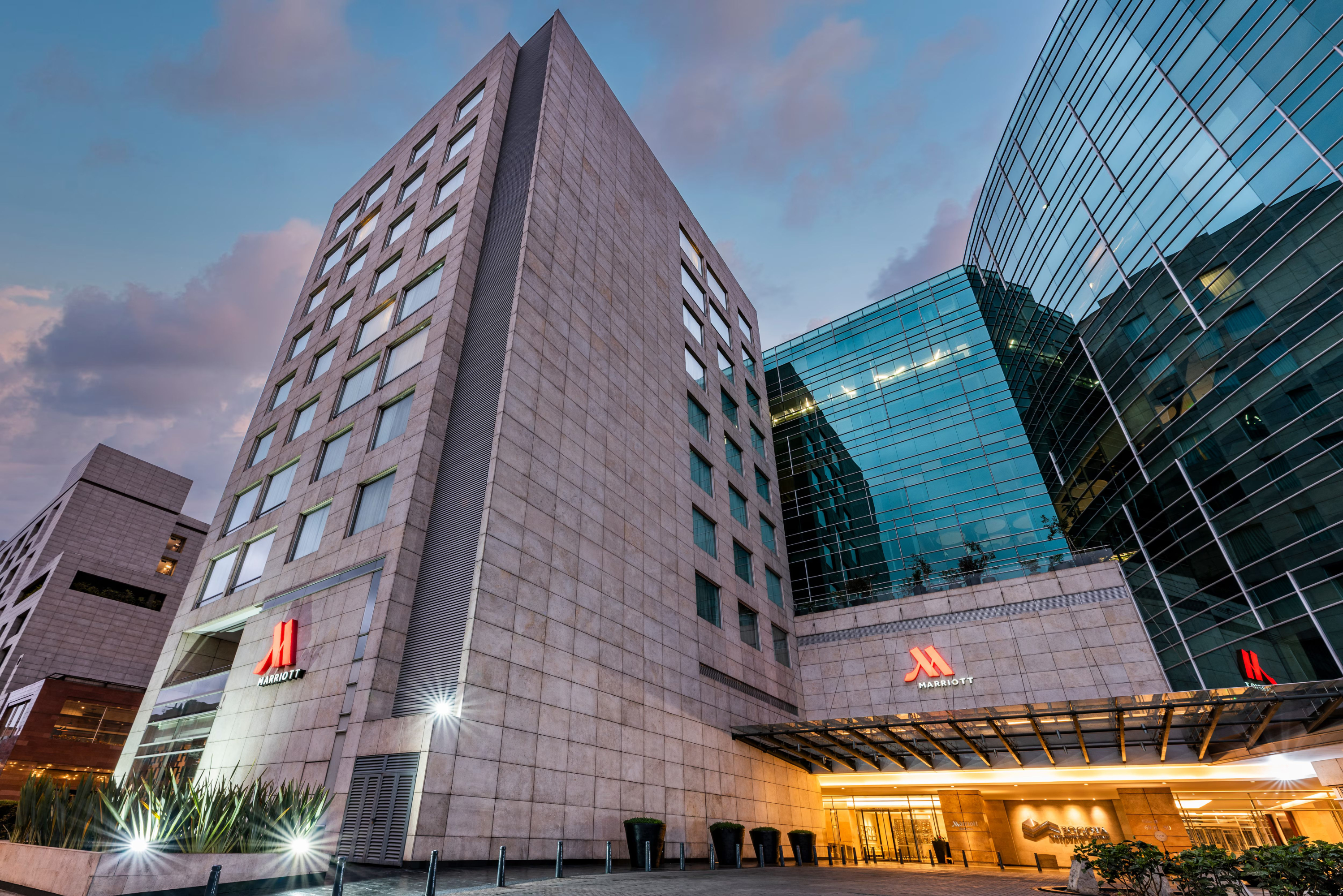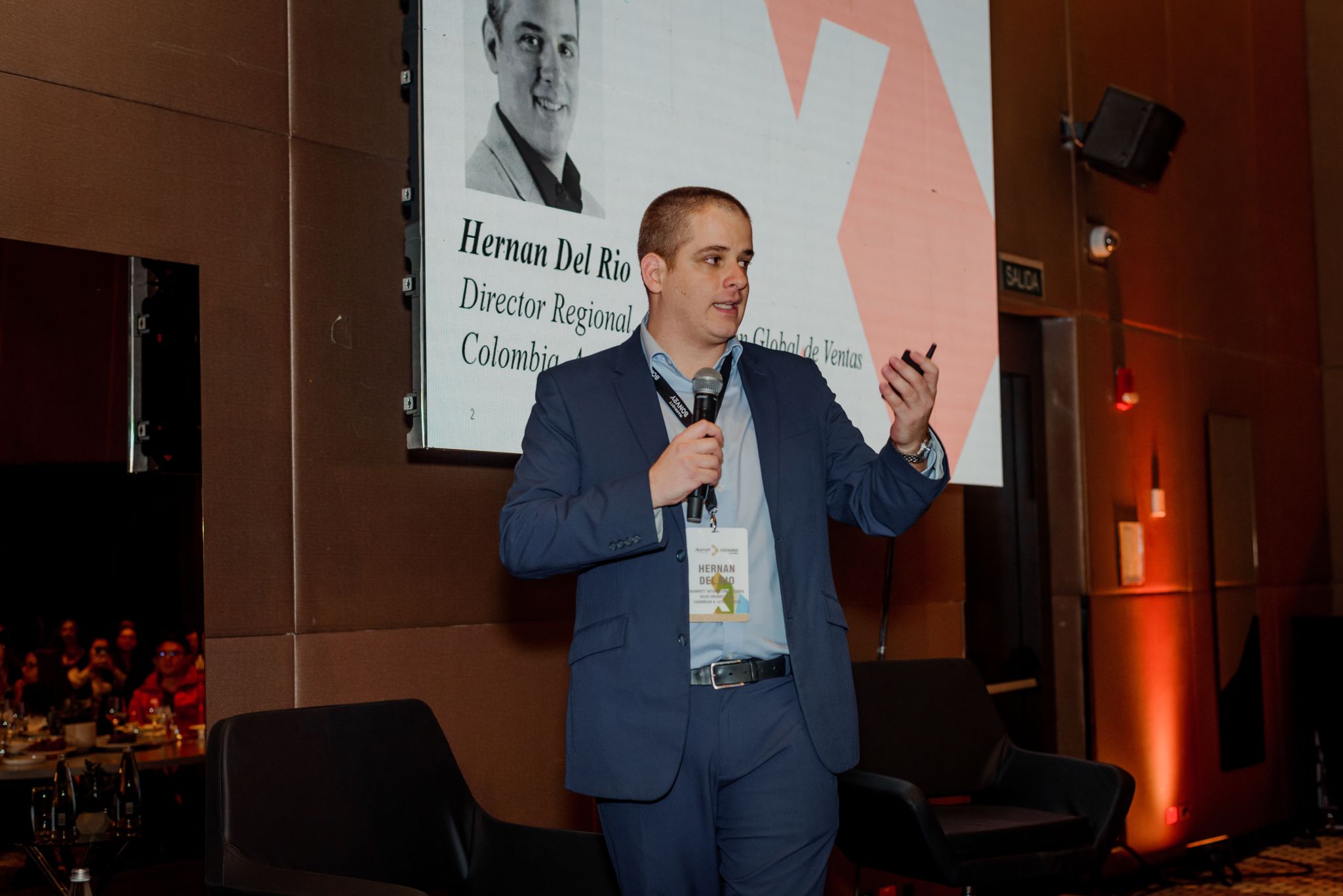What is the future of business events in a digital world? According to a study, the key is generating emotions.

After COVID, the business world was transformed. Virtual reality became an increasingly common reality in companies, which, according to experts, has impacted employees' ability to interact, many of whom no longer interact beyond screens.
In this context, one of the challenges for the hospitality sector was finding a way to re-engage its corporate clients, who are increasingly digital in their operations but have traditionally held training or team-building events.

The speaker's role is changing: they are no longer just experts, but emotional storytellers. Photo: Vanexa Romero/El Tiempo
But a new study by the multinational hotel company Marriott Bonvoy appears to hold the key to addressing this challenge. The global research, conducted by Marriott in conjunction with the American firm StoryLab Craft, proposes a radical shift in the way we design congresses, conventions, and corporate meetings.
The research, also applied in Latin America and specifically in Colombia, suggests that the success of an event will depend on the "emotional return" it generates. Hernán del Río, global sales for Argentina, Chile, and Colombia at Marriott International, sums it up this way: "We want people to connect emotionally with themselves, their company, and their colleagues during that event, in addition to learning and updating."
The study points out that one of the main challenges left by the pandemic was not only the interruption of in-person events, but also the loss of real connections between employees. Although the hybrid event format is here to stay, the key, according to del Río, is to create memorable, meaningful, and human experiences.

The global study was developed by Marriott and StoryLab Craft. Photo: Marriott
"What we're looking for isn't just to fill a schedule of talks, but rather to ensure that attendees take away something emotionally valuable in those 8, 20, or 48 hours," the regional leader emphasizes.
This view also has a deeper explanation: the generational shift in work environments has transformed people's expectations. New generations value flexibility, but they also need spaces that strengthen their identity and organizational culture.
"During their normal lives, people are connected from home, hyperconnected but isolated. The event becomes that place where they can reconnect on a human level," the executive explains.

Hernán del Río, Marriott's Global Sales Manager for Argentina, Chile, and Colombia. Photo: Hernán del Río
Furthermore, the report highlights a significant shift in the role of the speaker. It's no longer enough to be an expert on the subject; they're now also expected to be an emotional storyteller who understands who's on the other side of the stage.
“Today, a conference not only has to know the subject, it also has to connect. The great lesson from these two days was that the best speakers were those who truly knew their audience,” says del Río.
The Marriott Bonvoy Events platform, where the study and its findings are available, was officially launched last week. According to del Río, any event organizer can access the study without restrictions.
“This toolkit is open. No logins or passwords. We want to help the market evolve because we know there's a tangible return for everyone: companies, organizers, and hotels,” he concludes.
Environment and Health Journalist
eltiempo





